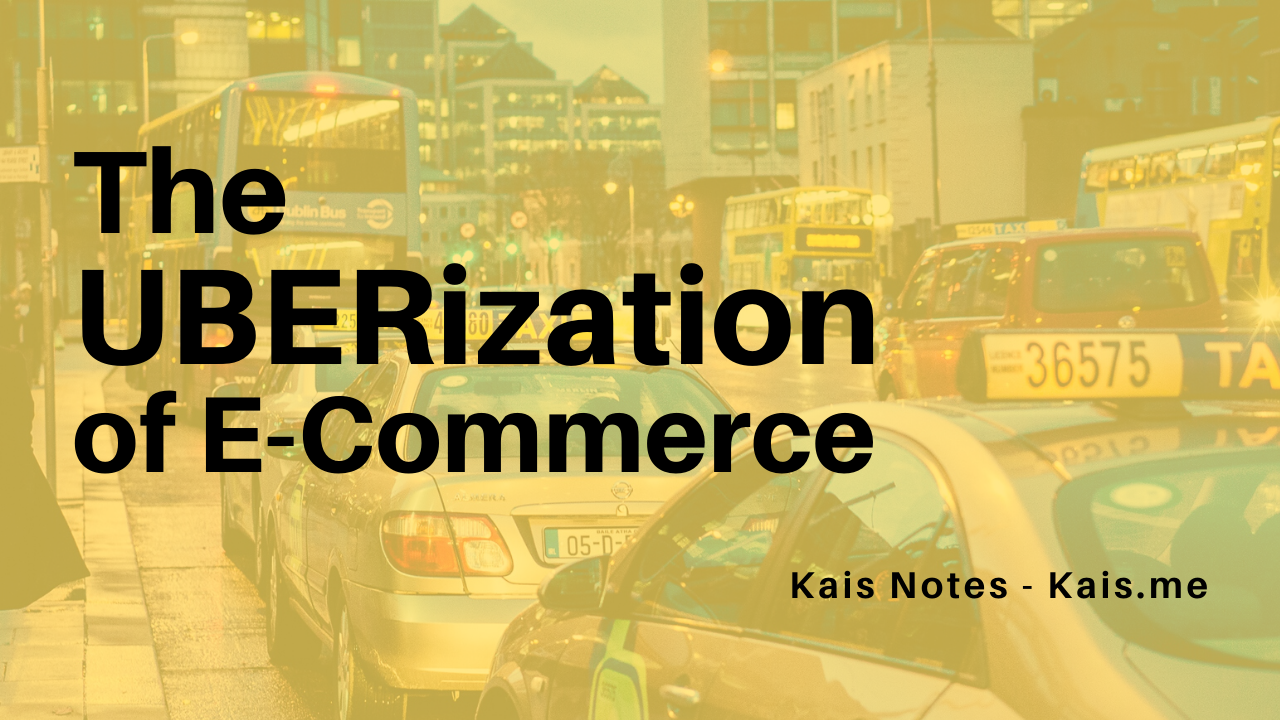Most of us have used Uber, Lyft, or any other car ride sharing service in the past, or even food or grocery delivery services, and we took the service that we received for granted without thinking about how that happened or when did it this “digital disruption” start. Almost everything nowadays is being serviced to us in an “uber” way, many restaurants, grocery stores, and soon our daily coffee will be delivered to us via a “service-on-demand”.
Uber, or any other one of the services or companies mentioned in the book, are only a platform for users to use and benefit from. And users here are both the ones who are requesting the service, and the people who are actually delivering it (delivering people, food, coffee …etc.). I believe that we have not yet reached the top of the uberization era, but we will be hitting it soon.
As I mentioned briefly earlier, Uber’s business model is no ordinary e-commerce model. They don’t sell anything and only provide their app for their users to use. Each and every transaction is happening between the driver and the customer and Uber just takes a percentage of that transaction. With that, Uber is not responsible for anything that happens between the driver and the passenger since they are only the “messenger” here. Also, they don’t have to provide any sort of benefits to the drivers as they are not their employees but only “independent contractors”. I personally believe that this is one of the smartest business models of this modern time.
As we all know, there are two sides to every coin and this applies to Uber, Lyft, Doordash, or any other “uberized” services these days. Uber has been under fire for some time due to many claims by drivers for mistreatment, lack of process, and other state and local laws violations.
Doordash, a food delivery service, and Instacart, a grocery delivery service, were both under fire recently for “stealing” their drivers’ tips. Those two companies were subsidizing the drivers tips and giving them only a percentage of what should’ve been 100% theirs. More details on that can be found here: https://www.nbcnews.com/business/business-news/why-instacart-doordash-workers-don-t-always-receive-tips-you-n965926 And here: https://www.washingtonpost.com/business/2019/07/24/doordash-change-its-controversial-tipping-policy-after-outcry/?noredirect=on
Finally, critics are fearing that this new business model could expand to full-time jobs, where companies will hire people as “independent contractors” and not giving them any benefits. Personally, I’ve seen this happening already at a smaller scale, and my fear that this could expand more in the future.
Thanks! -Kais
